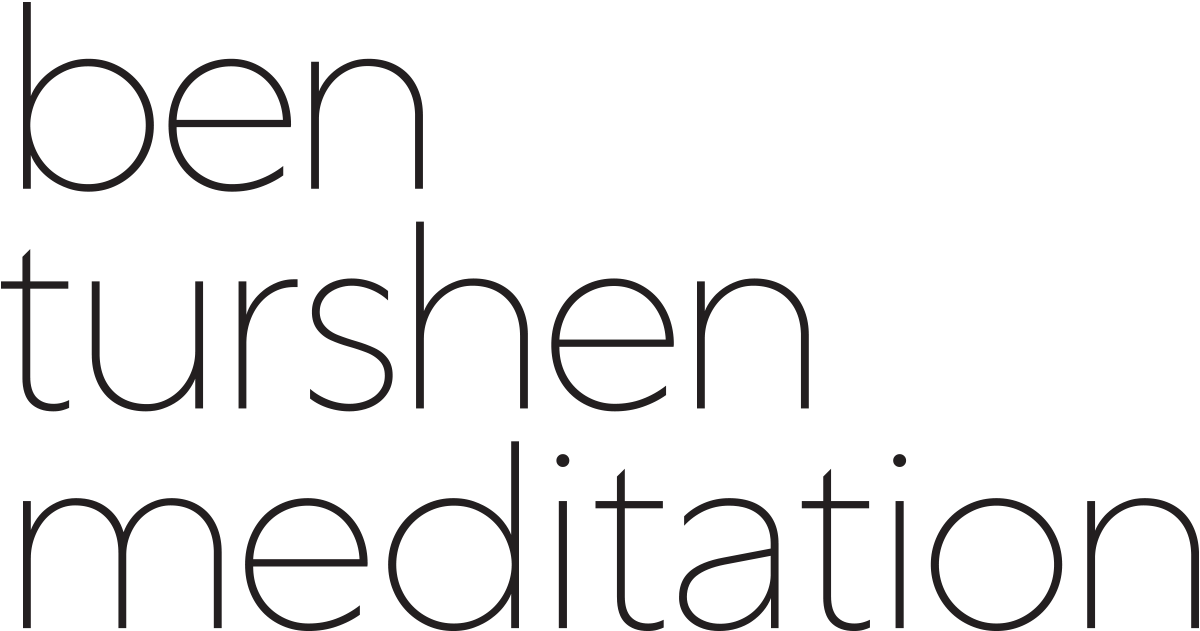By Arden Martin. Originally posted on ardenmeditates.com
As meditation picks up steam in the wellness space, mindfulness is everywhere. The term can be confusing, though, because mindfulness connotes two distinct things: a meditation technique and a state of being. Let's define them:
The technique: Mindfulness is a popular technique with many versions, but it generally involves sitting in a stable, erect position and feeling your breath as it goes in and out. When your attention inevitably wanders from the breath, you come back to it. If thoughts, feelings, or body sensations arise, you accept them without judgment and return to the breath. The touted benefits of this technique include physical and mental health improvements, including easier access to mindful living, described below.
The mental state: Mindfulness also refers to a state that is achieved when you are not meditating, ie. in the waking state of living. It is a moment-to-moment awareness of your thoughts, self, and surrounding environment, and it results in a fuller experience of life. In the shower, this could mean delighting in the sweet smell of soap, the warm rush of water, and the beautiful way it forms beads on your skin. At the dinner table, it could mean staying fully present with the laughter, tastes, and conversation that surround you rather than checking your phone. Furthermore, mindfulness is non-judgmental. When an undesirable thought arises, you simply observe it and let it pass, remembering that you are not your thoughts.
The concept of mindfuless is valuable indeed, and being mindful can certainly improve your life. However, I find that mindfulness is a spontaneous result of my Vedic meditation practice.To someone unfamiliar with Vedic meditation, this might be confusing: if mindfulness is so great, why would I bother with Vedic meditation? Here's the difference:
Vedic meditation is an effortless practice that is done in a comfortable, back-supported position. Once you trigger the technique, your mind and body de-excite and you enter a state of rest up to 5 times deeper than sleep. Your mind rests so deeply, in fact, that it actually transcends thought automatically; i.e. you stop thinking with no effort at all.
Mindfulness meditation involves more effort and subsequently less rest. You sit in an erect posture and focus attention on your breath, which keep the body and mind active.
Both techniques yield increased mindfulness. Which one sounds more fun to you? Not only is Vedic meditation more enjoyable to practice (in my opinion), but it affords you additional benefits. Most notably, it de-excites the nervous system and allows your body to rest so deeply that it releases accumulated stress and eradicates it completely over time.
Living in a state of mindfulness is a fantastic idea, but actually being present from moment to moment is really hard for most of us. If it were easy, there wouldn't be countless articles at your fingertips about how to achieve this elusive state. Here's the problem: if you're trying to be present, you're not actually being present. Reading an article about mindfulness and resonating with the concepts while sitting at the computer isn't the same thing as actually being mindful when you step back into your life. Wanting to live mindfully isn't enough to help you actually do so because it's difficult to access mindfulness through trying or effort of any kind. Fortunately, it's easy to access mindfulness by ridding the body of stress, and this is exactly what Vedic meditation does.
Before I started meditating, I struggled to enjoy the little moments in life. At social events, I was consumed with self-consciousness about my appearance and incessant thoughts about what might happen later. At home, I constantly listened to music and podcasts in an attempt to drown out the mental noise. Even though I faced zero real adversity and things were going well at work, my friends and family referred to me as "very stressed." But today, two years into my Vedic meditation practice, I can honestly say that I don't have stress and I am more mindful as a result. My life is far from perfect, yet I fully enjoy the moments that comprise it, both big and small. When I have an ugly thought, I let it go with ease and without judgment.
Vedic meditation has given me the gift of mindfulness along with countless other benefits. I've learned that dissolving stress is the key to staying grounded in the present moment, and this is reason enough to keep meditating for years to come.
